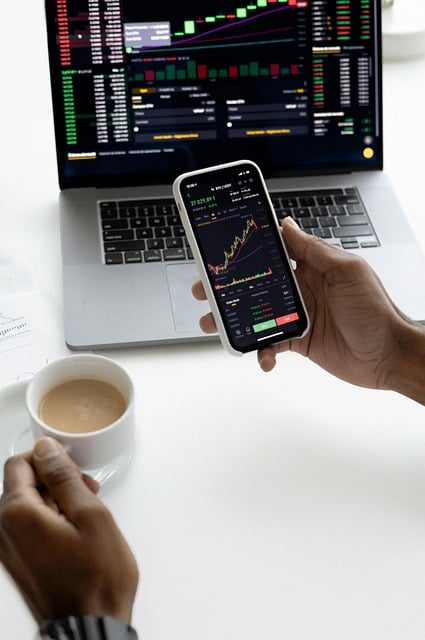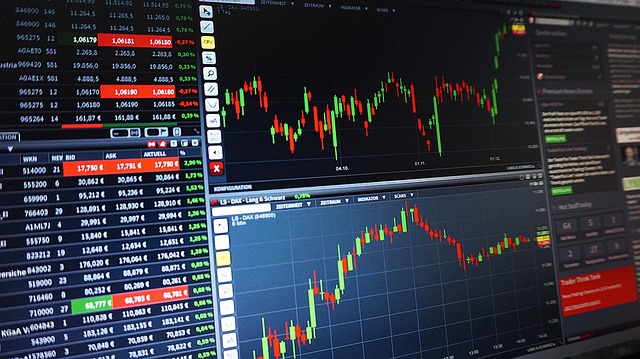AI Trading: The Future of Investment Strategies
Author: Jameson Richman Expert
Published On: 2024-08-08
Prepared by Jameson Richman and our team of experts with over a decade of experience in cryptocurrency and digital asset analysis. Learn more about us.
The world of finance has been undergoing a transformation, with technology leading the charge. One of the most significant advancements in recent years is the emergence of artificial intelligence (AI) trading. This article delves deep into the nuances of AI trading, exploring its benefits, risks, mechanisms, and future directions.

Understanding AI Trading
Before we dive into the specifics, it’s important to define what AI trading entails. In essence, AI trading refers to the use of artificial intelligence, machine learning, and data analytics to make trading decisions in financial markets. Unlike traditional trading approaches, where human judgment plays a central role, AI systems use algorithms to analyze vast amounts of data and identify trading opportunities.
The Mechanics of AI Trading
At the heart of AI trading are sophisticated algorithms that process large datasets—such as historical prices, trading volumes, economic indicators, social media sentiment, and more—to forecast market movements. Let’s break down the mechanics:
Data Collection
- Data Source Variety: AI traders consume data from various sources, including stock exchanges, news outlets, and social media. This data diversity allows for a comprehensive analysis.
- Real-time Processing: One of the remarkable capabilities of AI is its ability to process real-time data. This means decisions can be made quickly, taking advantage of fleeting opportunities in the market.
Machine Learning Models
- Algorithm Selection: Machine learning requires choosing the right algorithms, such as decision trees, neural networks, or reinforcement learning models, based on the specific trading strategy.
- Continuous Learning: AI systems can adapt over time by learning from past trades and refining their strategies to improve future performance.
Execution and Monitoring
- Execution Speed: In trading, speed is crucial. AI systems can execute trades in milliseconds, capitalizing on price changes that human traders may miss.
- Risk Management: AI is also employed in monitoring trading positions, assessing risks, and making real-time adjustments to minimize potential losses.
Advantages of AI Trading
AI trading offers several advantages that have attracted both institutional and retail investors. Below are some of the benefits I believe stand out:
Enhanced Decision Making
One of the most significant benefits of AI trading is its ability to analyze data faster and more accurately than human traders. This capability is particularly important in today's fast-paced markets where split-second decisions can lead to significant financial gains or losses.
Operational Efficiency
AI can manage portfolios and execute trades around the clock without the constraints of human fatigue or emotional biases. This continuous operation can lead to greater efficiency and more optimized trading outcomes.
Risk Mitigation
AI systems are designed to monitor risk factors continuously. They can implement stop-loss orders, diversify portfolios, and adjust trading strategies in real-time in response to changing market conditions, reducing the likelihood of catastrophic losses.
Challenges and Risks in AI Trading
Despite its advantages, AI trading is not without challenges. Here are some risks that I think investors need to keep in mind:
Market Adaptability
Financial markets are complex, and their dynamics can change rapidly due to unforeseen events—such as economic crises or geopolitical tensions. AI systems may struggle to adapt to these unexpected shifts, leading to erroneous trading decisions.
Data Quality and Management
The effectiveness of AI trading is heavily dependent on the quality of data. Poor quality, biased, or incomplete data can lead to inaccurate predictions. Therefore, robust data management practices are necessary for successful AI trading.
Ethical Considerations
AI produces decisions based on algorithms that can be opaque, raising ethical concerns about fairness, transparency, and accountability. Investors and companies alike must navigate these murky waters carefully.

The Future of AI Trading
As we look to the future, the role of AI in trading is likely to expand even further. Here are a few areas where I see tremendous potential:
Integration with Blockchain
The integration of AI trading with blockchain technology could revolutionize the way transactions are processed and executed. Smart contracts, powered by AI, can automate complex trading agreements, enhancing efficiency and trust.
Increased Personalization
AI can tailor trading strategies to individual investors, considering their risk tolerance, investment goals, and market outlook. This personalization could democratize access to sophisticated trading techniques previously reserved for institutional investors.
Enhanced Sentiment Analysis
As the ability to analyze social media and news sentiment continues to improve, AI trading systems can incorporate real-time sentiment data to enhance market predictions, effectively capitalizing on emerging trends.
Conclusion: The Double-Edged Sword of AI Trading
In conclusion, AI trading offers immense potential to transform the financial markets. However, as I reflect on the various aspects, it is clear that while AI has the ability to enhance decision-making and efficiency, it also introduces new risks and ethical dilemmas that must be managed. As technology continues to evolve, the discourse around AI trading's implications will be critical for shaping its future—ensuring it is both beneficial and responsible.
Ultimately, investors need to stay informed, understand the mechanics behind AI trading, and make wise decisions considering both the opportunities and the risks. In a world driven by data, adopting a balanced perspective is essential for navigating the continually changing landscape of AI trading.